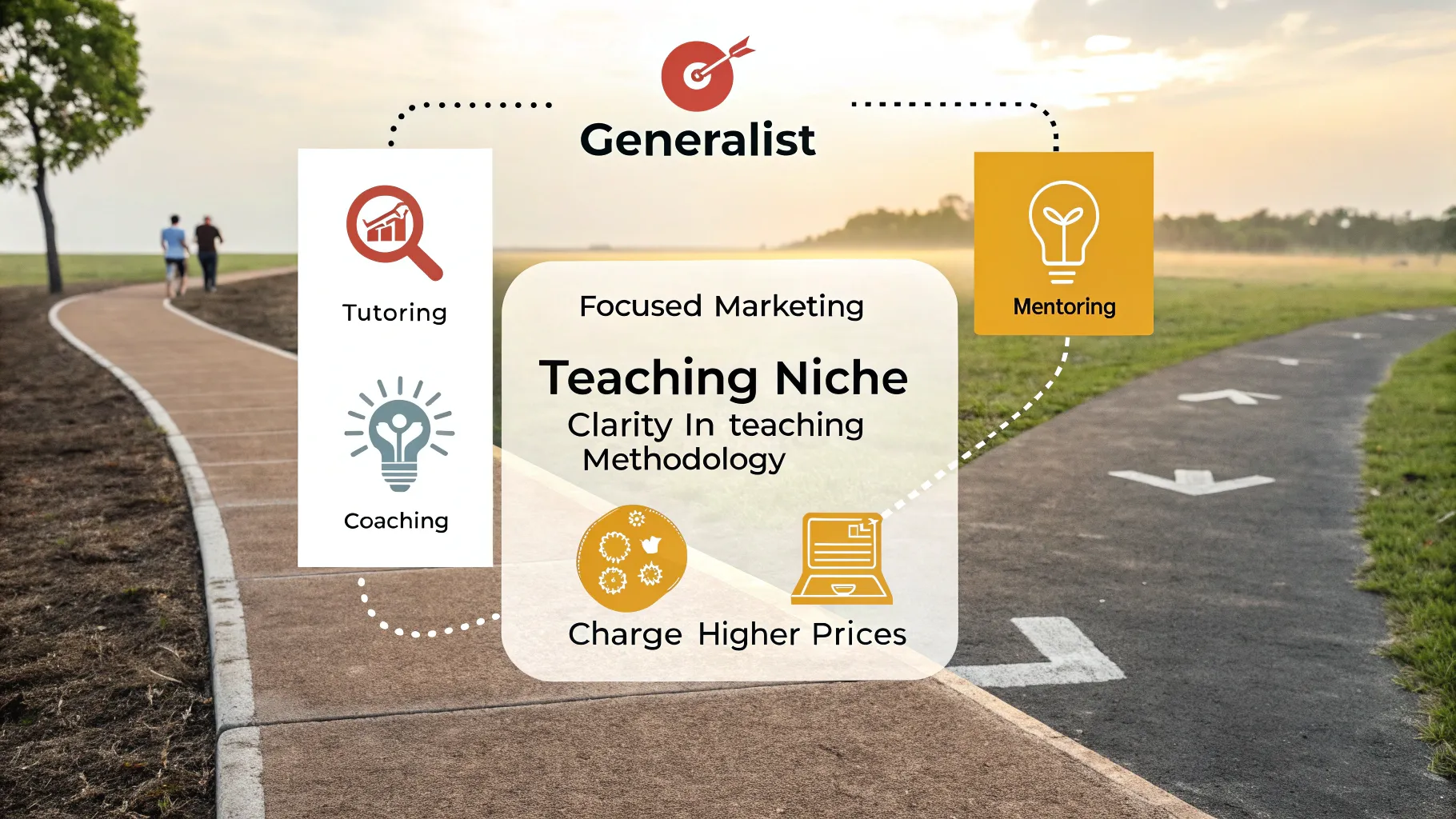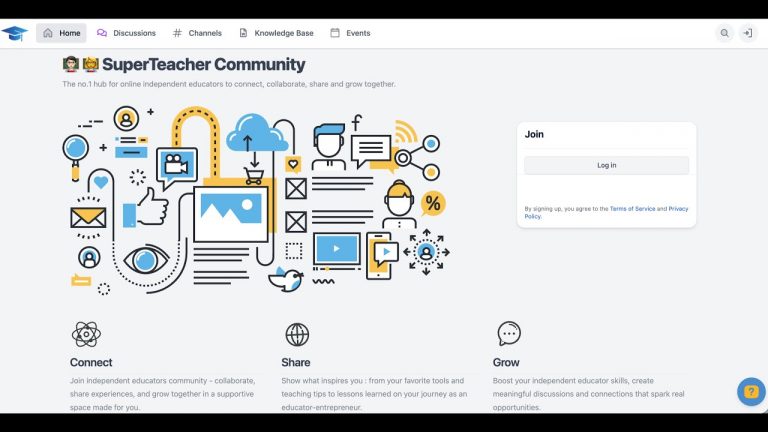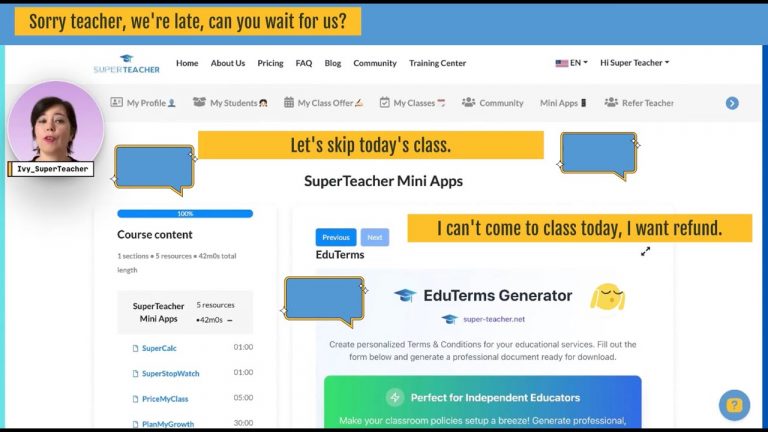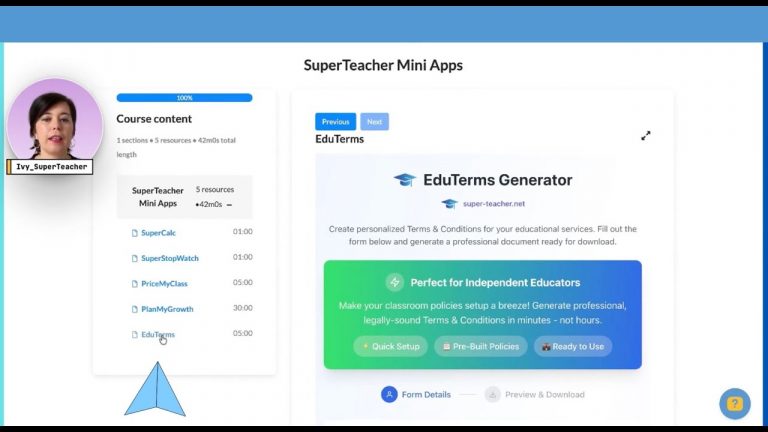
Are you an educator struggling to find your footing in the vast world of online teaching, tutoring, mentoring or coaching? Wondering how to narrow down your focus and find your niche as an independent educpreneur? You’re not alone. Many educators grapple with this very question. In this comprehensive guide, we’ll explore how to identify a profitable edu niche that feels right and fits perfectly for you. Let’s dive in!
Why You Need A Teaching Niche
Choosing a niche is crucial for your success as an educator. You might think that being a generalist allows you to help anyone and everyone, but in reality, it can dilute your efforts and make it harder to connect with potential clients.
- Having a niche helps you focus your marketing efforts and attract your ideal clients.
- It brings clarity to your education methodology and allows you to communicate your value effectively.
- A well-defined niche enables you to charge higher prices by demonstrating your specialized expertise.
As you embark on this journey, remember that identifying your niche is not about boxing yourself in; it’s about creating a starting point from which you can evolve and expand your offerings over time.

Understanding Learned Skills vs. Lived Experience
When it comes to finding your niche, consider two key aspects: learned skills and lived experiences. Both are valid pathways into the edupreneurship world.
Learned Skills
Learned skills refer to the formal training and certifications you acquire. For instance, if you complete a formal test prep program, you gain specific tools and methodologies to guide your clients effectively. Or if you are en educated musician and you teach French, you might want to consider using those skills into your future education business, combining them in a way that sets you apart from the competition or just making you and your service offer unique and memorable.
Lived Experience
Lived experiences, on the other hand, stem from your personal journey. These are the lessons you’ve learned through your own life challenges. For example, if you struggled with weight loss in the past and have successfully transformed your lifestyle, you might feel called to help others in similar situations. Had struggles learning a new language? Use that experience to build better, more personalized rapport with clients and more authentic self-marketing.
Recognizing whether you want to target your audience from a place of learned skills or lived experiences (or both) will help you define your niche more clearly.

Questions to Identify Your Profitable Edu Niche
To find your niche, you need to ask yourself a series of insightful questions. Take some time to reflect on these:
1. Who Do You Serve?
Identify the ideal client you want to work with. Are they men or women? What age group do they belong to? What are their interests and challenges? The more specific you can be, the better.
2. What Problem Will You Solve?
Understanding the specific problems you want to address is crucial. If you’re a business coach, for example, ask yourself what common issues your clients face and how you can help them overcome these obstacles.
3. Why You?
This question focuses on your unique selling proposition. How does your story, methodology, or experience make you the right person to help your target audience? This is where you can differentiate yourself from other educators.

4. What are the pain points of your ideal client?
Understanding the struggle and challenges your clients experience is essential. Knowing the needs, specific goals and the thoughts and feelings associated with their prior experience (the attitude they walk in with when reaching out to you) allows you to connect on a deeper level and communicate the value of your edu services.
5. Where Do Your Clients Hang Out?
Identifying where your ideal clients spend their time—be it online communities, social media platforms, or local events—is vital for your marketing strategy. This helps you access your target market effectively.

6. Are They Ready to Invest?
Gauge the willingness of your potential clients to invest time and money in solving their problems. Are they looking for solutions, or are they merely trialing and window-shopping? Engaging with them in these spaces will provide clarity on their intent.
The Importance of Market Research
Once you’ve answered these questions, it’s time to conduct thorough market research. This involves:
- Talking to potential clients to understand their needs.
- Analyzing competitors to see how they position themselves within your niche.
- Identifying pricing structures that resonate with your target audience.
Effective market research will not only help you refine your niche but also give you insights into how to market your services successfully.
Steps to Validate Your Education Niche
After identifying your niche, it’s essential to validate it to ensure it’s profitable. Here are some steps you can take:
1. Engage with Your Community
Join groups or forums related to your niche. Engage in conversations, listen actively, and observe the common challenges your clients and prospects face. This will give you a clearer picture of how to tailor your educational services.
2. Attend Events
Participate in workshops or networking events focused on your niche. This is a great way to meet potential clients and understand their needs better. It also provides an opportunity to showcase your expertise.
3. Test Your Offerings
Before launching a full-scale program, consider offering free workshops or one-on-one teaching, mentoring or coaching sessions. This will help you gauge interest and gather feedback to refine your services.

Common Mistakes to Avoid When Choosing Your Niche
As you navigate your journey to find your niche, be cautious of these common pitfalls:
- Being Too Vague: General niches like “life coaching” or “teaching general English” can make it difficult for potential clients to understand your value. Be specific.
- Ignoring Market Demand: Ensure your chosen niche has enough demand. Passion is important, but it must also be marketable.
- Lack of Commitment: Choose a niche you are genuinely passionate about. Your enthusiasm will resonate with your clients.
Final Thoughts
Finding your niche as an independent educator is a journey that requires introspection, research, and engagement. By understanding your skills, experiences, and the needs of your target audience, you can carve out a profitable niche that not only satisfies your passion but also helps others transform their lives. Remember, your niche can evolve as you grow. Embrace the journey and keep pushing forward!



